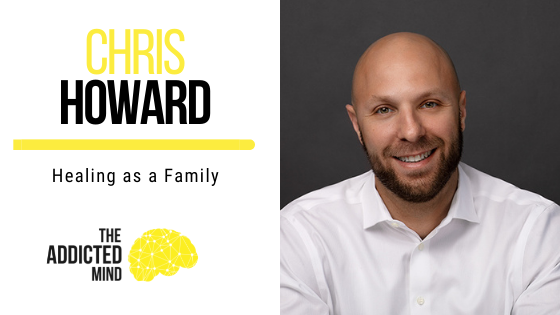On today’s episode, Duane speaks with Chris Howard, the founder of Ethos Recovery, a long-term recovery house for men. He’s also the founder of Lifestyle Interventions where he offers family intervention mentoring.
Chris shares his journey of addiction and recovery and his experience working with families, helping them deal with addiction, and helping them heal as a whole system. A Los Angeles native, Chris grew up in a home with a schizoaffective mother and ended up in foster care. As a young man, Chris turned to drugs and alcohol to help escape his troubles in life and thought that his rite of passage into adulthood was going to prison. Chris eventually became a drug addict and drug dealer. He was engaging in all this maladaptive behavior without anyone telling him anything. After more than a decade of struggling with addiction, Chris finally decided to change his course and help other people going through the same thing.
Now working in a helping field, Chris wants to help people without belittling them or making them feel worse about their suffering. He believes that his job is to help people question their maladaptive belief systems, their coping strategies, and why they (and even their families) are afraid of being honest.
During the conversation, Chris explains that we’re now seeing a pendulum shift in treatment and recovery from being a heavily social model – that could be lacking in accountability – into one that is very clinical and lacking in empathy.
These two have to meet somewhere in the middle. We must hold people accountable while also having love and compassion as we walk them through their recovery journey. There has to be a balance between both in order to create a potent formula for healing, personal growth, and being your best self.
In this episode, you will hear:
- Chris’ journey through addiction and recovery
- How he began working with families
- Understanding the family dynamic
- Why trauma isn’t always the root cause of addiction
- Emotional reasoning tied into trauma
- The accountability perspective with DBT or Dialectical Behavior Therapy
- If drugs aren’t the problem, what is?
- The need to balance accountability and empathy
- How to heal as a family unit
Key Quotes:
[07:54] – “The group dynamic at times can help elevate your level of consciousness.”
[12:30] – “The hardest thing to watch is people who maybe are more personality disordered and the families can’t let go… they put themselves through so much pain and suffering as a result of their love for this person who either can’t or will not change.”
[13:28] – “Trauma is the dominant narrative in mental health and substance abuse treatment at this point. It’s not that I don’t believe in trauma, I just don’t believe every addict is a result of trauma.”
[20:31] – “Working on mental health and substance abuse problems, it often gets worse before it gets better because you no longer have that to shield you to cope.”
[21:14] – “Drugs aren’t the problem. They’re actually a phenomenal solution for human beings. The problem is they can’t cope for some reason.”
[24:40] – “The empathy aspect might actually even be one of the most important aspects because a lot of times, the mental state that individuals who struggle with mental health and substance abuse are in, is so deprived as a result of their life experience.”
[32:48] – “Families often equate more money with better treatment. And it’s not necessarily true.”
Subscribe and Review
Have you subscribed to our podcast? We’d love for you to subscribe if you haven’t yet.
We’d love it even more if you could drop a review or 5-star rating over on Apple Podcasts. Simply select “Ratings and Reviews” and “Write a Review” then a quick line with your favorite part of the episode. It only takes a second and it helps spread the word about the podcast.
If you really enjoyed this episode, we’ve created a PDF that has all of the key information for you from the episode. Just fill in your information below to download it.

